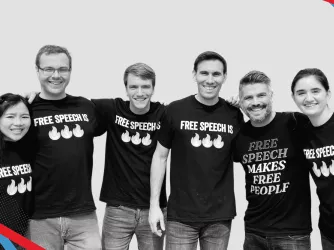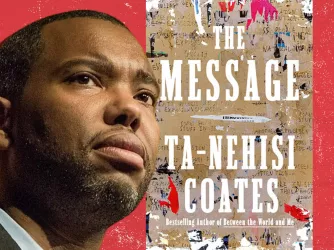Table of Contents
Victory for Free Speech: California’s Chico State Scraps Unconstitutional ‘Speech Code of the Year’
Today's press release announces a welcome victory: After FIRE named California State University-Chico's definition of sexual harassment one of two "Speech Codes of the Year" for 2011, the university has scrapped the language in question.
As of mid-December 2011, Chico State maintained an informational page on sexual harassment stating that faculty members committed sexual harassment if they "implicitly devalue[d] students for their gender or sexual orientation." Examples of such harassment included "reinforcement of sexist stereotypes through subtle, often unintentional means," including the use of "stereotypic generalizations" and the "continual use of generic masculine terms such as to refer to people of both sexes or references to both men and women as necessarily heterosexual."
Citing its shocking vagueness and striking breadth, FIRE named this restriction on protected speech our "Speech Code of the Month" for March 2011. Sam pointed out just how this policy could be cited to shut down academic discussion on campus:
Unintentional reinforcement of sexist stereotypes is sexual harassment? Statements that subjectively "trivialize" people on the basis of gender or sexual orientation are sexual harassment? A look through CSU Chico's course catalog reveals that, as would be expected at a major university, the university offers courses that necessarily involve sensitive issues relating to race, gender, and sexual orientation. In the university's Multicultural and Gender Studies department, for example, course offerings include "Gay, Lesbian, Bisexual, Transgender, and Queer Issues and Identities"; "Perspectives on Gender and Disease"; "Multicultural Health"; "Sociology of Gender"; "Women, Men and the Media"; and "Cultural Images of Women."
Now look back over those bolded examples of sexual harassment and think about whether, as a faculty member teaching one of these courses, or one of the many other course offerings that touch on issues of race, gender, and sexual orientation, you might fear running afoul of this policy when discussing controversial but wholly germane subjects in your classroom. In FIRE's experience, concern over a policy like this one is far from hypothetical; since our inception, we have handled all too many cases involving faculty members who faced discipline for classroom expression that should have been wholly protected by the principles of free speech and academic freedom.
When the policy hadn't been revised by mid-December, we decided it had earned the dubious distinction of being one of our two Speech Codes of the Year.
Happily, Chico State has seen the light. In a phone call yesterday, Chico State notified us that its policy was no longer published on the university's website. In fact, we found that the university had also removed a policy that had defined sexual harassment as including "sexist comments," "sexual innuendoes, comments, and remarks," "suggestive, obscene, or insulting sounds," and "humor or jokes about sex or gender in general." Unfortunately, the university still has some work to do, as it maintains a definition of sexual harassment that includes "subtly demeaning behavior (including sexist jokes and assumptions), and unwelcome physical gestures like leering." But the revisions already in place are a welcome and necessary start.
Today's press release points out how successful our Speech Code of the Month feature has been. Since we named Rhodes College's Policy on Discrimination and Harassment our first Speech Code of the Month in June 2005, 32 universities have fully revised the policies that earned them the "honor," including four schools named Speech Code of the Month in 2011.
For now, our other Speech Code of the Year, the University of Florida's Student Rights and Responsibilities policy, remains in place. That policy warns students that "Organizations or individuals that adversely upset the delicate balance of communal living will be subject to disciplinary action." As Sam wrote back in April:
This policy is unconstitutionally vague because it is impossible to know, from its plain language, what is prohibited. If students are forced to guess at what speech might qualify as sufficiently "upsetting" to warrant punishment, many students will decide it's best not to speak up at all.
Hopefully, now that Chico State has left the University of Florida as the sole owner of 2011's Speech Code of the Year, we'll see a quick revision there, too. We'll be watching.
Recent Articles
FIRE’s award-winning Newsdesk covers the free speech news you need to stay informed.

How to survive Thanksgiving

Right, left, and in-between: Can we bring our differences to the table?

FIRE is the proud home for those who defend free speech
